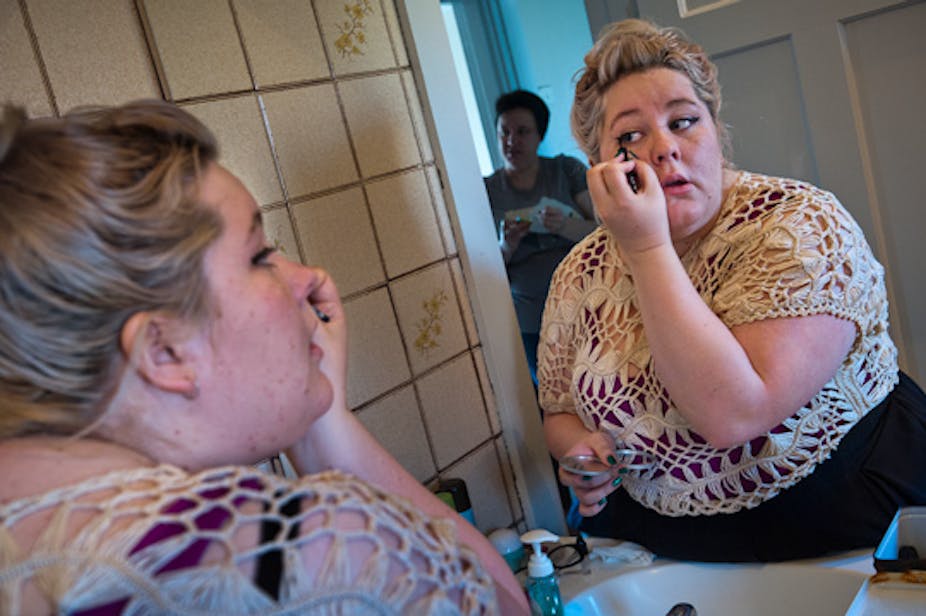Discussions about obesity tend to focus on perceived health risks and the financial drain they pose to the health system. What’s less recognised is that the way we talk about obesity makes the social position of obese people disadvantaged and highly stigmatised – this is exactly what our new project aims to tackle.
Obese individuals face a range of prejudices and discrimination because of their weight. Stereotypes of being lazy, undisciplined, slovenly and unmotivated, result in widespread unfair treatment. This leads to limited opportunities, harassment and bullying in the workplace, and biased treatment and inappropriate comments from health-care professionals.
Evidence suggests that such discrimination results in heightened body image issues, disordered eating patterns and low levels of self esteem.
The role of the media
One of the leading causes of weight-based stigma and its normalisation comes from the images we encounter in the media. A recent study found that 72% of images that accompanied news stories about obesity portrayed obese people in a negative light.

Obese subjects were more likely to be headless, for instance, or eating and drinking, and less likely to be fully clothed, professionally attired or exercising. Given the integral role the media plays in framing issues to generate public understanding, these reinforcements of weight bias should cause great concern.
Images in the media cast obese people in a highly negative light, reinforcing stereotypes and prejudice. This reflects the views of obese subjects in our own research who have, time and time again, complained of the damaging effects of media images of obesity in their day-to-day lives.

Not only do research participants feel that fat bodies are not justly represented, but their discriminatory portrayal leads to feelings of shame, guilt, anger and disempowerment.
Our findings are reinforced in a study, which showed that unlike other public health issues such as cancer or AIDS, coverage of obesity tends to take a blaming approach. This process alienates obese people although little thought is given to the consequences of such prejudice.
Body positive imagery
Although belonging to online fat-acceptance communities have played an important role for obese people in responding to weight-based stigma, action is also needed in mainstream environments.
We are currently engaged in a project with the aim of producing an image library that more fully represents the lived experience of obesity in a non-stigmatising manner. The images show people engaged in activities such as bike riding, shopping for fashionable clothes and applying makeup – depictions that challenge the image of the slovenly and lazy obese subject.

The photographs for the image library are the outcome of a 12-month documentary-style study of the lived experience of fat. The participants are everyday people who are involved in fat-acceptance communities and keen to see change in the representation of obesity.
Our approach is of photographing everyday life so nothing is staged or constructed. The photographs acknowledge the identity of the subject to bring the viewer closer to a felt experience. The documentary imagery to be shown through the library is a non-stigmatising, life-affirming view of what it is to be obese and live a positive life.
Our aim is to make the library available to the media around June 2012, as a way of changing the conversation about obesity and the way it’s depicted. Offering more positive imagery is an important step toward stopping the daily discrimination obese people encounter and the trauma they face from the simple act of opening up a newspaper.

